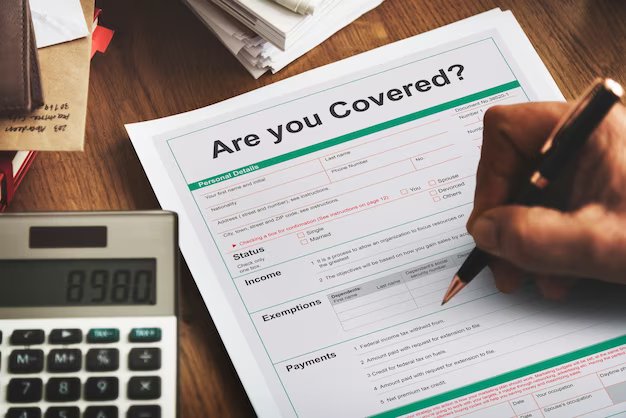Insurance Claims : Insurance is like a safety net that protects us from unexpected financial burdens when accidents, disasters, or unfortunate events occur. We pay our premiums diligently, with the hope that when we need it most, our insurance will come to the rescue. However, the process of making an insurance claim can sometimes be confusing and frustrating. In this article, we will explore how policyholders can ensure a smooth insurance claims experience.
Understand Your Policy
The first step in ensuring a smooth insurance claims experience is to thoroughly understand your insurance policy. Policies can be long and filled with complex terms, but take the time to read and comprehend what your policy covers and what it doesn’t. Pay special attention to:
a. Coverage Limits: Know the maximum amount your policy will pay out for different types of claims. Make sure it aligns with your needs.

b. Deductibles: Understand how much you need to pay out of pocket before your insurance kicks in.
c. Exclusions: Be aware of what is not covered by your policy. It’s crucial to know the limitations.
d. Policy Terms: Familiarize yourself with the duration of your policy, renewal dates, and payment schedules.
If you’ve got any questions or are uncertain approximately any component of your policy, reach out on your coverage agent or employer for explanation.
Keep Accurate Records
Maintaining accurate records is critical when it comes to filing an insurance claim. Here’s what you need to do:
a. Document Everything: If an incident occurs that may result in a claim, document it as thoroughly as possible. Take pictures, record videos, and gather witness statements if applicable.
b. Maintain Receipts: Keep records of expenses related to the incident, such as medical bills, repair invoices, or receipts for replacement items. This documentation will help in establishing the value of your claim.
c. Communicate Promptly: Notify your insurance company as soon as possible after an incident, even if you’re not sure whether you’ll file a claim. Early communication is essential.
Communicate Effectively

Clear and powerful conversation with your coverage enterprise is essential. Follow those pointers:
a. Contact Your Insurer: Call your insurance company’s claims department as soon as you can. Provide accurate and complete information about the incident. Be prepared to share your policy details, incident date and time, location, and any involved parties.
b. Be Truthful: Always be honest with your insurer. Providing false information can result in your claim being denied.
c. Keep Records Of Conversations: Take notes during all interactions with your insurer, including the date, time, and the names of the individuals you speak with. This can be helpful if there are any disputes later on.
File A Detailed Claim
When it’s time to file a claim, be sure to provide all necessary information and documents. A detailed claim submission can expedite the process. Here’s what to do:
a. Complete Claim Forms: Your insurance company will likely provide claim forms that you need to fill out. Be thorough and accurate when completing these forms.
b. Attach Supporting Documents: Include all the documentation related to your claim, such as photos, receipts, medical records, and police reports.
c. Explain the Incident: Provide a clear and concise description of the incident, consisting of how it occurred, who turned into worried, and any relevant information.
d. Review Before Submission: Before sending in your claim, review all the documents and information to ensure they are accurate and complete.
Follow Up
After filing your claim, don’t just sit and wait. Stay engaged in the process:
a. Check The Status: Periodically check the status of your claim by contacting your insurer. This will help you stay informed about the progress and any additional information needed.

b. Cooperate With Adjusters: If your insurer sends an adjuster to assess the damage or situation, cooperate fully. Provide them with access and information to help speed up the evaluation process.
c. Keep A Record: Continue documenting your communication with the insurer, including dates, times, and the content of conversations.
Be Patient
While you want your claim to be processed quickly, it’s important to remember that insurance companies often deal with a high volume of claims. It may take some time for your claim to be reviewed and settled. Being patient and understanding can help reduce frustration during this period.
Understand The Settlement Offer
When your insurance company makes a settlement offer, take the time to understand it thoroughly. Here’s what to do:
a. Review The Offer: Carefully review the settlement offer provided by your insurer. Ensure it covers all the losses you’ve incurred.
b. Ask Questions: If you’re unclear about any aspect of the offer, don’t hesitate to ask your insurer for clarification.
c. Negotiate If Necessary: If you believe the offer is insufficient, you can negotiate with your insurer. Provide additional evidence and reasoning to support your position.

d. Seek Legal Advice: If negotiations fail, consider seeking legal advice or assistance from a public adjuster to help you navigate the process.
Escalate If Needed
If you’re unable to reach a satisfactory resolution with your insurance company, you have options for escalation:
a. Contact A Supervisor: Request to speak with a supervisor or manager at the insurance company to address your concerns.
b. State Insurance Department: If all else fails, you can contact your state’s insurance department or regulatory authority for assistance and guidance.
c. Legal Action: As a last resort, you may need to consider legal action to resolve the dispute. Consult with an attorney who specializes in insurance claims.
Conclusion
Ensuring a smooth insurance claims experience is achievable when policyholders take proactive steps. Understanding your policy, keeping accurate records, effective communication, and following the claims process diligently can significantly improve your chances of a successful and timely settlement. Remember to be patient and seek assistance if needed. Your insurance is there to protect you, and with the right approach, you can navigate the claims process with confidence.
Also Refer : How To Ensure Your Insurance Claim Gets Approved
FAQs
Is it essential to report incidents to my insurance company immediately?
Yes, reporting incidents promptly is crucial to initiate the claims process and avoid potential issues with your claim.
What should I do if my insurance claim is denied?
If your claim is denied, you can appeal the decision, seek legal advice, or consult a public adjuster to explore your options.
Can I negotiate a settlement offer from my insurance company?
Absolutely. You have the right to negotiate a settlement offer to ensure it covers all eligible expenses and damages adequately.
Is it necessary to hire an attorney for an insurance claim?
While not always necessary, hiring an attorney can be beneficial if you encounter difficulties with your claim or disputes with your insurance company.
What should I do if I’m unsure about my policy’s coverage?
Contact your insurance company or agent to clarify any doubts or questions about your policy’s coverage and limitations.
Source Image : Freepik.com